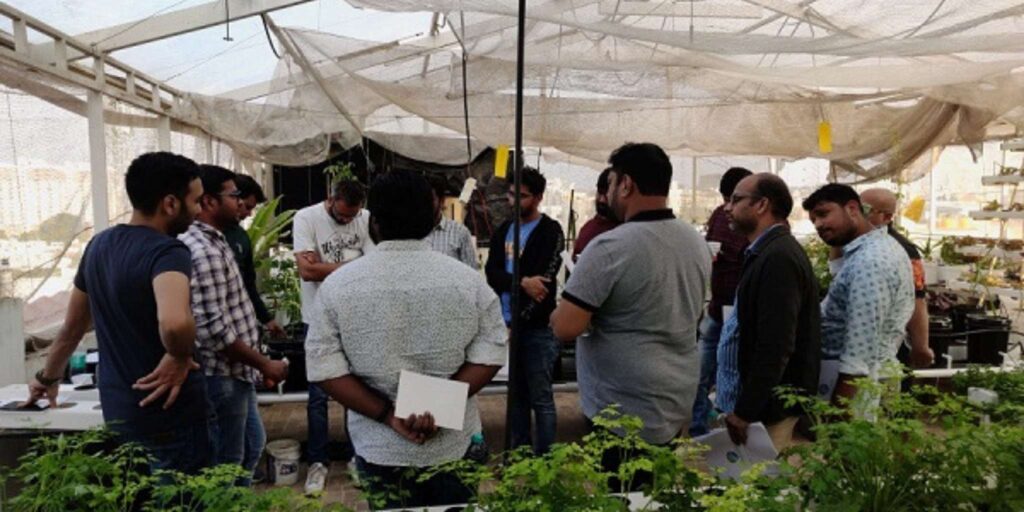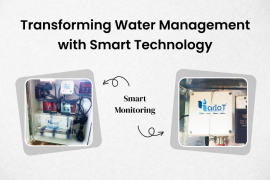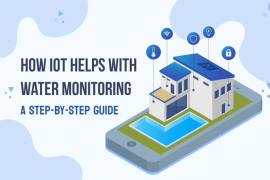Whenever a need emerges throughout human history, something new has evolved. The globe is being swept by innovative technology. Every day, something new arises to help our species and the entire planet progress. Smart water management technology is becoming a large part of agriculture and business, as it helps to cut costs, conserve resources, and save time in the workplace.
The hydroponic farming technique is one such innovative stride forward in the evolution of farming as we know it. New-age urban farmers are turning to hydroponics gardening to meet the expanding need of an ever-growing population. Many others who are interested yet unfamiliar with the area have enrolled in hydroponic training programs. As a result, you’ve taken the first step toward starting your own profitable hydroponic business.
What is Hydroponic farming, you ask? Let us simplify it for you.
Hydroponic farming, sometimes known as soilless farming is a method of growing vegetables and commodities even without soil.
What if there was no soil? What gives? How is this even possible? I understand what you’re thinking, so pay attention to what you’re about to read next.
The roots in a hydroponic farming system get supported by different methods without the need for soil. Plant roots are fostered and cultivated in liquid fertilizer solutions or liquid static media such as Rockwool and Vermiculite.
Isn’t it fantastic? However, don’t get too excited and start designing a hydroponic farming system. Let’s have a look at the many sorts of hydroponic systems available before you take that big step forward.
The things you need to know before beginning hydroponic farming-
1. Why should you start a hydroponic farm?
As per a report, India’s hydroponics industry would develop at a compound annual growth rate of 13.53 percent from 2020 to 2027. Moreover, you would be able to sample food that was free of pesticides and insecticides. After all, good health equals good fortune.
2. Which plant to grow?
You must determine which crops, veggies, or fruits to plant while studying and grasping market demands. Seasonal patterns have been taken into account as well. It involves looking at local market demands, crop economic worth, and climate-resilient features. In a hydroponic farm, there are primarily two sorts of plant species: Lettuce, basil, and other short plant species Tomatoes, cucumbers, and other tall plants.
3. Where to grow your plants?
You must select your place wisely, whether you are a home grower or a modern farmer with acres of land. Is it better to stay indoors or go outside? The budget needed to establish your farm will be affected by your location. A greenhouse, growth systems, fertilizers, and a microclimate controller are all necessary components of a hydroponic farm. Depending on the size of the farm and the money you’re ready to invest, each of these factors deserves careful thought.
4. Identify what your budget is?
Make a budget that includes both one-time and ongoing costs.
Immediate expense- Land, farm equipment, and permanent working space fittings are one of your initial costs. Even though these items are the most expensive, you will only have to pay for them once or twice unless you rent them.
Recurring expenses- Water, seed, electricity, periodic maintenance or repair, employees, nutrition solution, pH stabilizer, and other recurrent expenditures are the most mandatory ones in the creation of your budget.
5. Which hydroponic system to use?
Before you begin your hydroponic farming setup, you must weigh the advantages and disadvantages of each system to choose which is ideal for you. Knowing this will also enable you to get the most out of the system you’ve selected.
6. Who is your target audience?
Your local market might be your target audience. You may start by spreading the word about your product to your friends and relatives. You can work with local merchants or join forces with well-known companies in the hydroponic industry. There is a huge impact on how well your company operates.
7. Why do you need hydroponic training?

Would you dive into an ocean without knowing how to swim, to be honest? You certainly wouldn’t. Why should you risk starting a business without first learning how it works? It would be wrong to try to cultivate a crop without first knowing how to use hydroponics.
You must learn everything you can before starting your hydroponic business, both to avoid costly mistakes and to optimize revenues.











